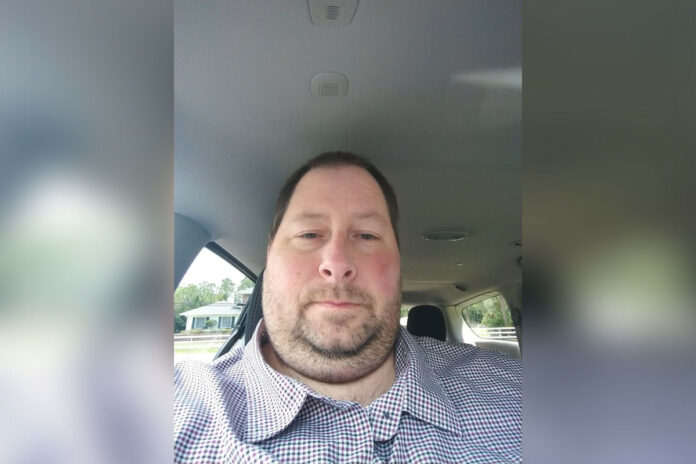May 18, 2020 | 6:40am | Updated May 18, 2020 | 9:25am
A Florida man who initially believed the coronavirus was a “fake crisis” that was “blown out of proportion” is now hospitalized along with his wife — and is sounding a cautionary note about the deadly bug.
“I thought it was maybe the government trying something, and it was kind of like they threw it out there to kinda distract us,” Brian Hitchens told WPTV from his hospital bed.
“I’d get up in the morning and pray and trust in God for his protection, and I’d just leave it at that. There were all these masks and gloves. I thought it looks like a hysteria,” he added.
The Uber driver described his ordeal in a lengthy Facebook post.
“Many people still think that the Coronavirus is a fake crisis which at one time I did too and not that I thought it wasn’t a real virus going around but at one time I felt that it was blown out of proportion and it wasn’t that serious,” he wrote.
Hitchens said he continued downplaying the pandemic until he began feeling sick and stopped working.
A couple of days later, his wife also began feeling unwell, so she went to a hospital and was told to go under quarantine.
But when the couple’s conditions worsened, Hitchens wrote, they went to Palm Beach Gardens Medical Center.
“They admitted us right away and we both went to ICU. I started feeling better within a few days but my wife got worse to the point where they sedated her and put her on the ventilator,” he said.
“I was never put ventilator and started feeling better feeling stronger never had terrible aches and pains just weak and exhausted,” Hitchens said, adding that his wife remains sedated.
“After 3 weeks I have come to accept that my wife may pass away and the peace I have about it is that I know without a shadow of a doubt that she will be going home to be with the Lord but I also do believe in miracles and I’m holding on to the chance that she may get healed but if not I am thankful for her I know we’ve been married for 8 years,” he said.
He added: “So think about what I wrote and think about if this thing is a fake crisis.
“Looking back I should have wore a mask in the beginning but I didn’t and perhaps I’m paying the price for it now but I know that if it was me that gave it to my wife I know that she forgives me and I know that God forgives me.”






